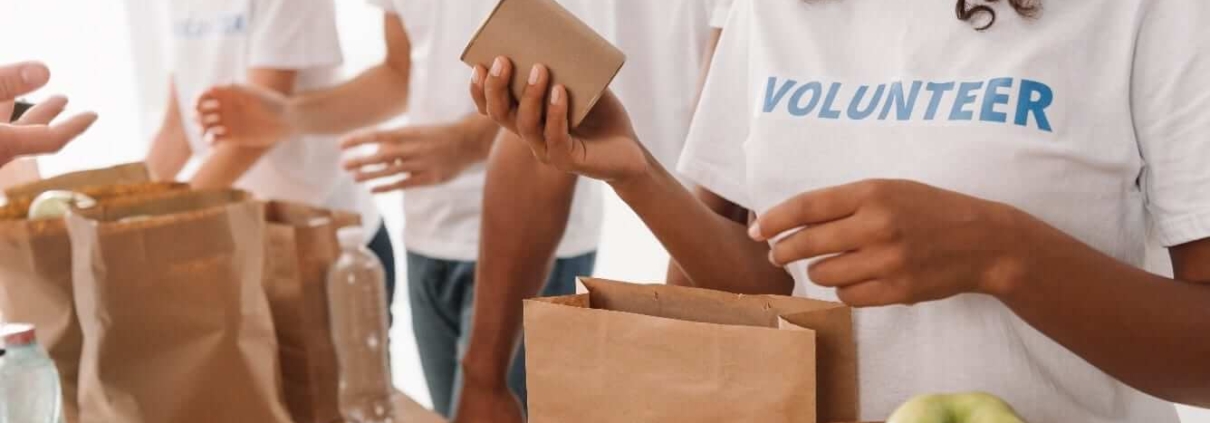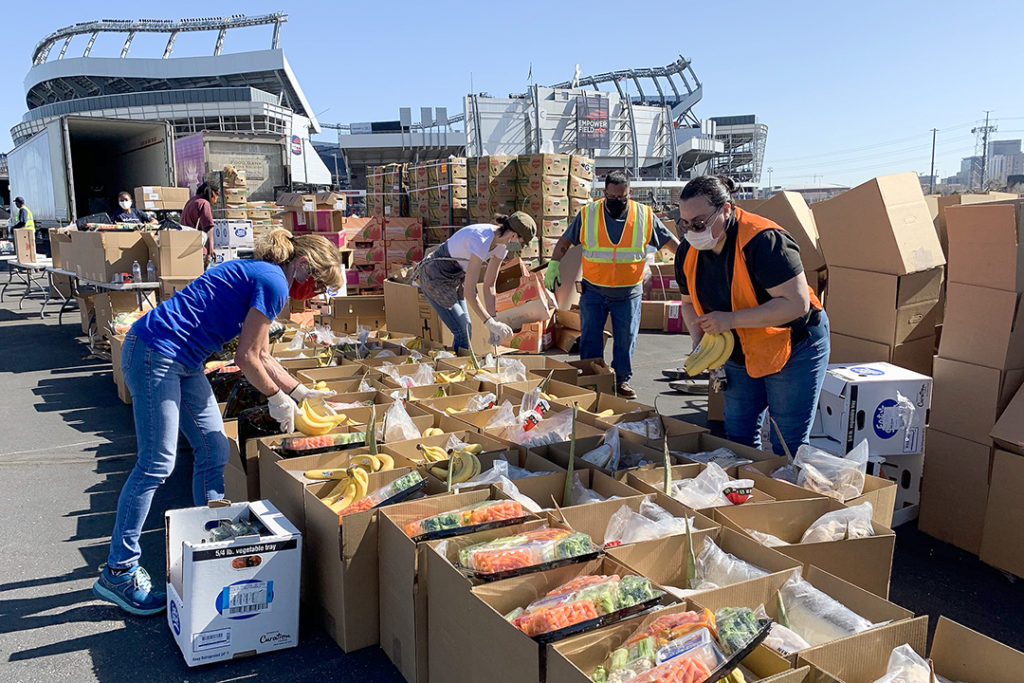How Volunteering at a Food Pantry During the Holidays Can Make a Difference
The holiday season is a time of giving, reflection, and community. While many of us look forward to festive gatherings, sumptuous meals, and exchanging gifts, we mustit’s crucial to remember that not everyone has the same experience. For many individuals and families, the holidays can be stressfula period of stress and hardship, especially when basic needs like food are hard to come by. This is where food pantries play a vital role, providing essential support to those in need.
Volunteering at a food pantry during the holidays can significantly impact both the volunteers and the recipients. It fosters a sense of community, teaches empathy, and helps ensure that no one goes hungry during this special time of year. At So What Else, we are committed to supporting our communities by providing essential services, and we encourage everyone to get involved.
The Importance of Food Pantries
Food pantries are essential for communities, especially during the holidays, when the demand for their services often increases. They play a crucial role in supporting individuals and families who might otherwise struggle to obtain the necessary food they need. Food pantries serve multiple purposes, providing immediate relief not only immediate relief but also long-term support to those in need. Here are some of the key ways in which food pantries are vital:
Nutritional Support
One of the primary functions of food pantries is to ensure that individuals and families have access to healthy and nutritious food. This is especially important because:
- Balanced Diets: They provide a variety of food items that contribute to balanced diets, including fresh produce, protein sources, and whole grains.
- Health Benefits: Access to nutritious food helps reduce the risk of chronic diseases such as diabetes, heart disease, and obesity, which are often linked to poor diet.
- Child Development: Proper nutrition is critical for the growth and development of children, impacting their physical health, cognitive abilities, and academic performance.
- Senior Health: For elderly individuals, a nutritious diet can improve health outcomes, reduce hospital visits, and enhance the quality of life for elderly individuals.
By providing essential nutritional support, food pantries help individuals lead healthier lives and reduce the burden on healthcare systems by providing essential nutritional support.
Emergency Relief
Food pantries offer immediate assistance to those experiencing financial difficulties, acting as a crucial safety net during times of crisis. This emergency relief is significant because:
- Economic Hardship: Families facing unemployment, medical emergencies, or other financial setbacks can rely on food pantries to meet their basic needs.
- Natural Disasters: In the aftermath of natural disasters like hurricanes, floods, or fires, food pantries provide essential supplies to those affected.
- Seasonal Pressures: During the holidays, financial pressures can increase during the holidays due to additional expenses like gifts and celebrations, making food pantries’ support even more critical.
- Pandemics: During global health crises such as the COVID-19 pandemic, food pantries have played a vital role in ensuring food security for many families impacted by job losses and economic instability.
The ability of food pantries to provide immediate relief helps stabilize families during challenging times and prevents further hardships.
Community Support
Food pantries create a sense of solidarity and mutual aid among community members, fostering a supportive environment. This community support is essential for several reasons:
- Social Connections: Volunteering and participating in food pantry activities help build social connections and strengthen community bonds.
- Empathy and Understanding: Interacting with those in need fosters empathy and a deeper understanding of the challenges faced by others, promoting a more compassionate community.
- Resource Sharing: Food pantries often collaborate with other local organizations, schools, and businesses to share resources and expand their reach, enhancing the overall support network within the community.
- Volunteer Opportunities: They provide meaningful volunteer opportunities for individuals and groups, allowing people to give back to their community and make a positive impact.
By fostering a sense of community and encouraging mutual aid, food pantries contribute to the overall well-being and resilience of the communities they serve.
The Impact of Volunteering
Volunteering at a food pantry has numerous benefits, not only for the recipients of the services but also for the volunteers themselves. These benefits extend beyond the immediate act of giving, creating a profound and lasting impact on both individuals and communities.
Making a Tangible Difference
One of the most significant impacts of volunteering at a food pantry is the direct contribution to the well-being of individuals and families in need. By sorting, packing, and distributing food, volunteers help ensure that no one goes hungry, especially during the holidays. This tangible difference is visible and immediate, providing nutritious meals to those who might otherwise go without.
- Direct Support: Volunteers help provide essential food supplies to families and individuals facing food insecurity.
- Nutritional Assistance: Ensuring that recipients receive healthy and balanced meals.
- Immediate Relief: Offering a lifeline to those experiencing financial difficulties, especially during the holiday season.
- Community Stability: Helping to stabilize the lives of vulnerable individuals and families by meeting a basic need.
Building Empathy and Understanding
Volunteering at a food pantry also helps build empathy and understanding. It allows volunteers to witness firsthand the challenges that others face, fostering a deeper awareness and compassion for those in need.
- Personal Connection: Interacting with recipients can help volunteers understand their stories and struggles.
- Breaking Down Barriers: Volunteering bridges gaps between different socioeconomic groups, promoting inclusivity.
- Empathy Development: Volunteers gain a greater sense of empathy by seeing the direct effects of food insecurity.
- Awareness: Increased awareness of the issues others facefaced by others can lead to more informed and compassionate communities.
Personal Growth
The act of volunteering provides an opportunity for personal growth and development. It allows individuals to step outside their comfort zones, take on new challenges, and learn valuable skills.
- Skill Development: Volunteers can develop skills in areas such as food handling, organization, and customer service.
- Confidence Building: Successfully contributing to a cause can boost self-esteem and confidence.
- Sense of Accomplishment: Seeing the positive impact of their efforts provides a sense of fulfillment and purpose.
- Perspective: Volunteering offers a new perspective on life, often leading to a greater appreciation for what one has.
Community Engagement
Volunteering at a food pantry strengthens community bonds and fosters a culture of support and cooperation. It brings people together for a common cause, creating a network of individuals who are dedicated to helping one another.
- Social Connections: Building relationships with fellow volunteers and recipients.
- Community Spirit: Encouraging a spirit of giving and mutual support within the community.
- Network Building: Creating a network of individuals and organizations working together to address food insecurity.
- Collective Impact: Working as a group to make a larger impact than any one person could alone.
Why the Holidays?
The holidays are a particularly crucial time for food pantries because:
- Increased demand: More families seek assistance due to financial pressures and holiday-related expenses.
- Seasonal giving: The spirit of the season often motivates people to give and volunteer.
- Emotional impact: Ensuring that everyone can celebrate with dignity and joy.
How You Can Get Involved
Getting involved with a food pantry like So What Else is simple and rewarding:
- Find a local pantry: Locate a food pantry near you through our website.
- Sign up to volunteer: Register for volunteer shifts, especially during peak times like weekends and holidays.
- Donate food or funds: Contribute non-perishable food items or financial donations to support our efforts.
- Spread the word: Encourage friends, family, and colleagues to get involved.
Volunteering Activities
Volunteering at a food pantry involves a variety of activities that are crucial to its operation. Each task you undertake plays a significant role in ensuring that the pantry runs smoothly and efficiently, ultimately helping to provide essential services to those in need. Here’s a closer look at some of the key activities you might engage in as a volunteer:
Sorting and Packing Food
- Organizing Donations: One of the first tasks you’ll likely be involved in is sorting through donations. This involves checking the expiration dates, ensuring the quality of the food items, and categorizing them into different groups, such as canned goods, dry foods, and perishable items. This process is vital for maintaining the pantry’s inventory and ensuring that all food provided is safe and nutritious.
- Preparing Food Packages: Once the donations are sorted, the next step is packing the food into boxes or bags for distribution once the donations are sorted. This may involve following specific guidelines to ensure that each package contains a balanced variety of food items. Packing food also means paying attention to the specific needs of different families, such as dietary restrictions or preferences, to make sure everyone receives suitable and helpful items.
Distributing Food
- Handing Out Food Items: Distribution is a direct and impactful way to interact with the community. Volunteers often help set up distribution points, manage queues, and ensure an orderly and efficient process. You might be responsible for handing out food packages, and making sure that each individual or family receives the right amount and type of food.
- Providing Assistance: Beyond just handing out food, volunteers also offer a listening ear and assistprovide assistance as needed. This could mean helping elderly individuals carry their packages, explaining the contents of the food parcels, or directing people to additional resources or services offered by the pantry or other local organizations.
Stocking Shelves
- Maintaining Inventory: Keeping the pantry shelves stocked is an ongoing task. Volunteers ensure that all food items are properly shelved, labeled, and easily accessible. This involves rotating stock to make sure that older items are used first, organizing items logically and efficientlyin a logical and efficient manner, and continuously monitoring the inventory to identify any shortages.
- Creating a Welcoming Environment: A well-stocked and organized pantry not only makes it easier for those in need to find what they are looking for but also creates a welcoming and dignified environment. Volunteers play a crucial role in maintaining this environment, making the pantry a positive space for all visitors.
Cleaning and Maintenance
- Ensuring Cleanliness: Cleanliness is critical in a food pantry to ensure the safety and health of everyone who visits or works there. Volunteers help with regular cleaning tasks such as sweeping floors, wiping down surfaces, and ensuring that all areas, including storage rooms and distribution areas, are kept clean and sanitary.
- Safety and Hygiene: Beyond general cleaning, maintaining hygiene standards is essential. This includes following specific protocols for food safety, such as proper handwashing, using gloves when handling food, and ensuring that all volunteers and visitors adhere to these standards. Volunteers also help with minor maintenance tasks to ensure that the facility is safe and operational.
Additional Volunteer Roles
- Administrative Support: Some volunteers may assist with administrative tasks such as data entry, managing volunteer schedules, and updating inventory records. These tasks are essential for the pantry’s smooth operationsmooth operation of the pantry and help in planning and organizing future activities.
- Community Outreach: Volunteers may also be involved in outreach activities, such as organizing food drives, spreading awareness about the pantry’s services, and building partnerships with local businesses and organizations to support the pantry’s efforts.
Conclusion
Volunteering at a food pantry during the holidays is a powerful way to make a difference in your community. It not only provides essential support to those in need but also enriches the lives of volunteers. At So What Else, we are committed to creating a world where everyone can has access to the resources they need to thrive. Join us this holiday season and help make a positive impact in the lives of others.






